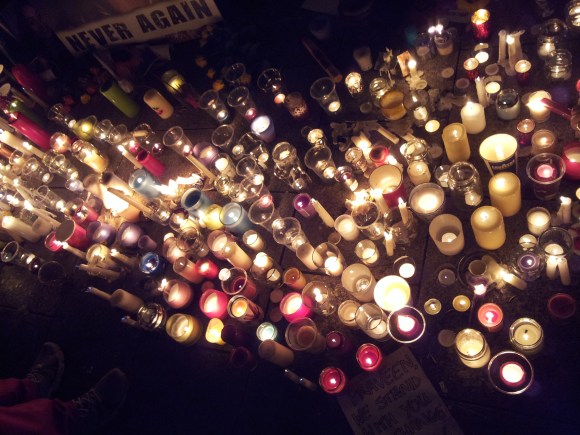Let’s not try to avoid the obvious here. The Seanad is an embarrassment. It’s astonishingly, intrinsically and indeed deliberately unrepresentative. It is a pawn of the executive, a sinecure for the superannuated, an affront to democracy.
But it’s something.
Embarrassing and undemocratic, because our Senate is fascist through and through. I’m quite serious. Its structure was inspired by a social theory called corporatism, applied under Mussolini’s government and endorsed enthusiastically by the Papacy as an alternative to the danger of electing socialists or communists.
The idea was that instead of voting in the traditional area-based way, members of society would be represented according to the role they played. So there would be workers’ representatives and bosses’ representatives, and instead of strikes (which would be illegal) they would reach agreement in parliament. It all seems rather sweet and naive really. If you overlook the fascist bit. It’s also fantastically paternalistic and condescending. Rather like communism, you don’t get to elect lawmakers directly. You elect people who elect people who elect people.
Well OK, one sort of person is considered sufficiently mature. As a university graduate, I get to vote directly for a Senator! We’re smart. The rest of you, you’re all represented by your trade union or your business organisation. And if you’re not an employee, an employer or a member of the graduate professions, well I guess you just don’t belong in the ideal world of Pope Pius XI.
At the same time though, the Senate can’t actually do anything. In framing the constitution of 1937, de Valera wasn’t going to create a power system to rival his party machine. Arguably it was a sop to the Catholic Church – which unlike communism actually could threaten democratic government. The Senate can say what it likes but it can’t stop a law passing or force any amendments. It can just delay a bill.
Unless the Dáil considers it urgent, and suspends even that power.
We should be glad I guess that it’s both powerless and undemocratic, and not just one of those things. But what it should be of course is neither. Whether directly elected or appointed by lottery (actually a better idea than it sounds), it must be constituted in a way that represents people equally. And it should have powers. Not to rival the Dáil’s authority of course, but sufficient to oversee legislation.
We speak of the checks and balances necessary to democracy, but in practise we ignore them pretty much completely. We have a winner-takes-all system of government. When you’ve got the Dáil you’ve hit the jackpot. Take the opposite extreme: In the US the executive is elected directly, entirely independently of the legislature. The legislature itself is divided into two houses of almost equal power, watching each other. These three branches plus the judiciary keep power balanced. Sometimes rather closely balanced as we’re seeing right now, but balanced.
Our system looks a lot like that, but the resemblance is almost wholly superficial. Despite being directly elected, our President is virtually powerless. The executive is elected by, and from among, the party or parties that win the Dáil (House). Finally, the Senate is packed with the executive’s nominees. So it’s true to say that the deadlock currently besetting America wouldn’t happen under our system. But that’s because under ours, the President and the Senate would be Republican too.
An Irish Taoiseach is as close to a dictator as it’s possible to get under the rule of law. Party discipline ensures cabinet assent. Except in rare cases of a minority administration, his will is inevitably carried out by the legislature. Only the judiciary is truly independent, and the circumstances under which they can review legislation are highly circumscribed. So it’s true that abolishing the Senate won’t remove a lot of government supervision. Just the little bit we had.
And once it’s gone, once all power is finally vested in the Dáil, do you seriously think they’ll ever give it back? We need a parliamentary system with more checks and balances, not fewer.









